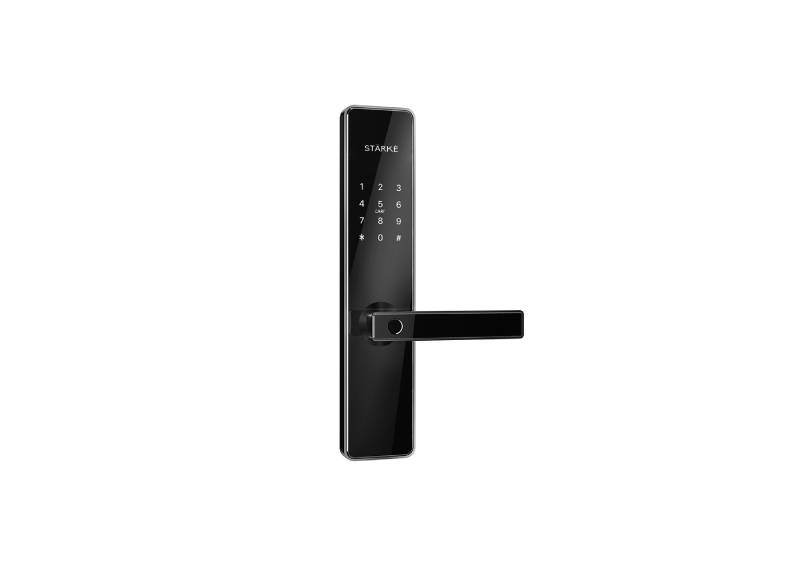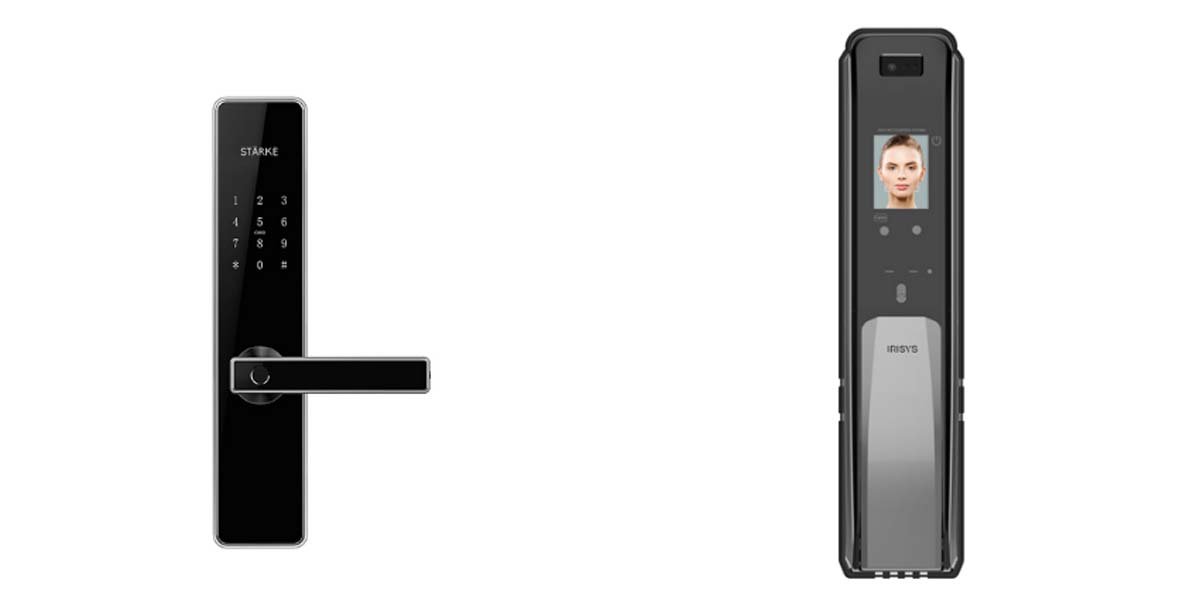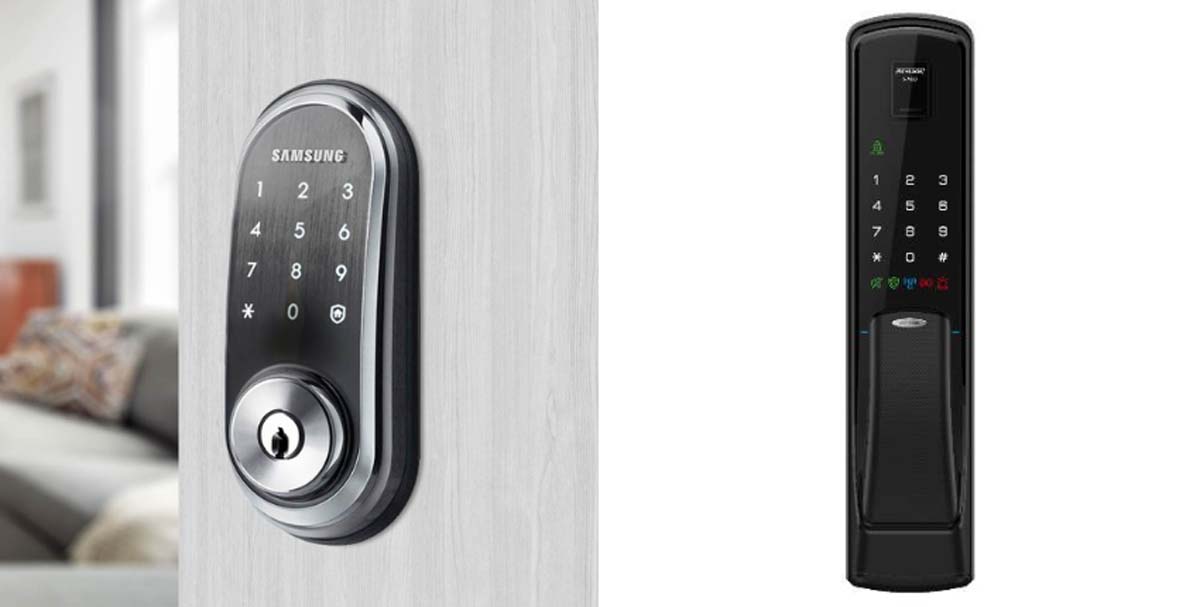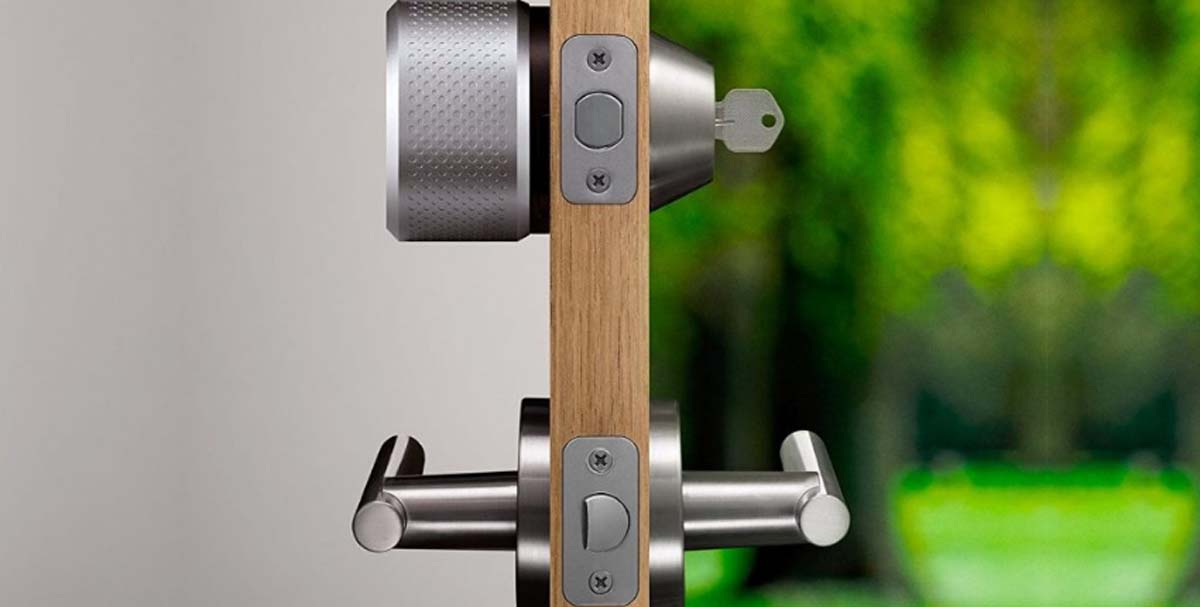Smart locks vs digital locks: Which to buy for your home?

Both smart locks and digital locks have the benefit of convenience over traditional mechanical locks. Replacing your conventional lock with a smart or digital one will mean you won’t need to carry a physical key everywhere you go.
Smart locks however, work a little differently from digital ones, so which to get depends on your preference and needs. We put together a quick guide to help you understand the difference so you can better decide which to get for your home.

Yes. We tend to use the terms smart locks and digital locks interchangeably, but there is a slight difference. For digital locks to work, they require a physical interaction or proximity with the lock.
The type of physical interaction differs from brand to brand.
Smart locks on the other hand are integrated with Wi-Fi, Bluetooth or other wireless mobile communication technologies so you can access the lock and change settings through an app on a smartphone.
If you are shopping around for a digital lock, one of the first things to ask yourself is what sort of modes of access (method of entry) do you want.
Depending on the brands, digital locks can have access modes through PIN codes (typing a PIN onto the keypad), security tokens (e.g. RFID card) or biometric means (fingerprint, facial recognition).
You may find having a digital lock with biometric means more useful than a digital lock with just PIN code entry, especially if you live with seniors who tend to be more forgetful.
Decide if you want to install the digital lock on your gate or the door as the lock you buy will be different.

For digital door locks, you can choose between a rim, deadbolt or a mortise digital lock. Rim locks and deadbolts are good for adding on to an existing door mechanism.
If you prefer to use your existing handle or want to keep an existing deadbolt lock, a rim or a deadbolt digital lock gives you extra security. Fitted within your door and featuring a handle, mortise digital locks tend to replace your existing lock mechanism entirely.

Make sure the lock you get is compatible with your gate/door before making the purchase. Some locks can only work with certain door thickness and material types.
Check the measurements. You will want to make sure your existing door handles (if you don’t wish to remove them) doesn’t get in the way of your new lock. If your home is fitted with a metal grill gate, ensure there is enough allowance between the door and your gate to install the digital lock.
Look out for additional features when getting your digital look. Some we think are particularly helpful:
Homegrown smart lock company igloohome calls smart locks “digital locks on steroids”. And they are right. Smart locks are just like digital locks, but with the additional mode of access through your smartphone and the ability to change the settings of your lock remotely.
While how it works differs slightly from brand to brand, smartphone capabilities essentially allow smart locks to do things like:
Now, if you are looking to create a smart home setup and integrate your smart lock with your home network, make sure the smart lock you are planning to get is compatible before making that purchase because not every smart lock is able to do that independently without some form of hub or bridge.
Most smart locks out there can work with your phone such as igloohome’s Smart Deadbolt 2S, but they may not be able to connect with your home network.

If you are looking for ones that can work with your home network, Yale has a series of Z Wave ready smart locks that can be integrated into your home hub. There are also a few smart locks by Samsung that can be integrated with Samsung SmartThings (you will need a SmartThings Hub).
Hailing from the US, popular smart lock brand August is also able to connect with Google Assistant, Amazon Alexa and Apple HomeKit (Google Assistant and Alexa requires an additional Wi-Fi bridge which you can purchase on the website).
Installation for the smart lock itself is a little tricky because it was designed for US locks, which are usually deadbolts. If you have an existing mortise lock on your door (likely the case in Singapore), you will need to install a separate deadbolt.
Read more about this homeowner’s installation experience with August here.

If you just want the convenience of not having physical keys with you, a digital lock will suffice. Depending on the access modes and features available, you will be able to unlock your lock in a variety of ways and have useful features like helping you automatically lock your door when the door closes.
Smart locks are a step-up from that and are for those who want to use their smartphone as a key. If you regularly have visitors or part-time cleaners coming by, a smart lock is useful to provide access to your home even when you are away.
The access you provide (usually a PIN code or your guest can download the same app you use to gain access) is often one-time or only accessible at a designated time you set, so when they leave your home, they won’t be able to use the same access again.
Complement your smart lock with a doorbell camera for added security.

For those who love all things smart home, having smart locks may seem like a no-brainer. But unless you are familiar with home automation technologies, you might have to spend some time integrating your smart lock with the rest of your home network.
Even then you may not be able to fully control it through your smart home hub. In Singapore, digital locks are still the more dominant player in the market with smart locks slowly being introduced so they are still catching up with the rest of the smart home ecosystem.
This article was first published in Renonation.